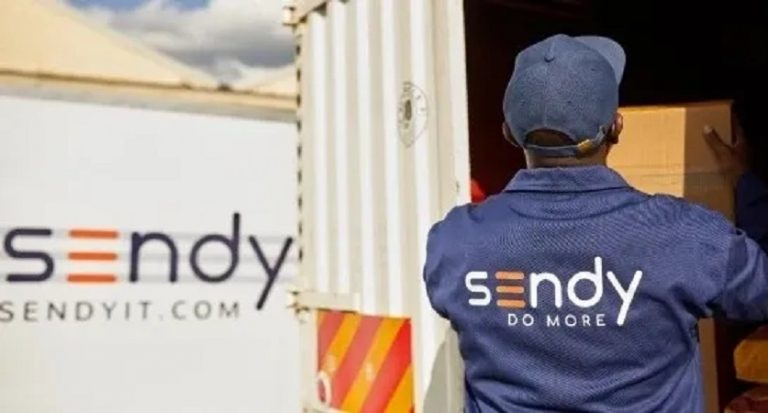Sendy's Struggles: A Case Study of Africa's Logistics Challenges

Rejoice Anodo
September 4, 2024

Company Overview
Sendy, a Kenyan-based startup, was a delivery platform that promised seamless logistics services. Launched in May 2014, their business model consisted of registered riders who used motorcycles, vans, and autorickshaws for on-demand delivery of goods. Meshack Alloys, Evanson Biwott, and Don Okoth started the company to close the logistics gap caused by the lack of instant, affordable delivery services. By September 2014, Sendy had established itself as a sustainable logistics platform with exponential growth, having over 8,000 customers and a thousand deliveries in tow.
Market Analysis
As a company, Sendy explored different niches in the logistics and transportation industries. Sendy Ride, an online taxi order app, was launched in July 2016. Cab rides were available in Nairobi, with the option of ordering motorcycle rides.
At this time, Sendy had competitors like Mondo Ride and Little Cab, the latter being funded by Safari, which also funded Sendy. While their impact was felt as a prominent company, it was often short-lived by their regular decision to revert to their main cause, running Sendy fulfilment centers. Two months later, Sendy Ride suspended operations to meet rising customer demand in the logistics sector.
Revenue
Sendy’s primary source of revenue was from e-commerce transactions and delivery commissions. After the first year of business, the startup recorded $45,000 in revenue, coupled with 27 riders and 12,000 deliveries. By the third year of business, revenue and the number of signed riders had tripled to $1.5 million and 700 respectively.
Growth and Expansion
During the early stages of business, Sendy received an undisclosed sum as its seed round from a series of investors, including the Safaricom Spark Fund. Series A funding of $2 million in 2017 from DOB Equity, Series B funding of $2 million from Goodwell Investments, $20 million from Early Stage Ventures, and $175,000 in January 2024 from Spark Accelerator.
By 2021, Sendy had expanded its operations to Nigeria, Uganda, and the Ivory Coast, catering to individual vendors and retail businesses. In 2022, Sendy Transport aimed at providing logistics services for businesses only, and existing users were asked to convert their accounts.
Sendy Supply, another product, allowed retailers to make bulk purchases from suppliers and the goods were delivered to them directly. Directly impacted by a lack of funding, Sendy Supply was shut down in response to the company’s restructuring process, resulting in 20% staff layoffs. Sendy Fulfillment remained the core service, offering logistics services for e-commerce brands.
Challenges and roadblocks
The significant decline in VC-backed funding for African startups following the tech downturn influenced Sendy’s choice to make profit-inclined decisions. Sendy laid off 10% of its workforce in July 2022 to cut costs and retain efficiency. In September, the company fully transitioned from offering B2C services to B2B, asking users to upgrade their accounts. A few weeks later, Sendy Supply suspended operations and 20% of the team was laid.
In 2022, Sendy sought $100 million in funding to expand its reach into South Africa, Egypt, Nigeria, and Ghana. This milestone was short-lived, as they raised $26.5 million, halting expansions into South Africa and Egypt. With an initial value of $80 million, negotiations for asset sales occurred when Sendy’s valuation fell to $40–$60 million due to an investor’s choice to back out during negotiations.
This was also fueled by the $1 million monthly burn rate, spurred by unexpected events like the fuel hike and the Kenyan national elections.
Shutdown Analysis
Kenyan startups were largely affected by the increased lending costs from developed countries, courtesy of the weakened Kenyan shilling. Sendy had to restructure due to funding droughts. Sendy Supply was shut down, and the focus on Sendy Fulfillment as the core business was amplified. In Q1 of 2023, Sendy ceased operations physically in Nigeria while retaining the app’s core function of providing logistics services for users.
Over the years, staff were repeatedly laid off to cut costs, and by the third quarter of 2023, Sendy’s CEO, Meshack Alloy, told Tech Crunch that Sendy was being acquired with the promise of a public formal joint statement. While seeking a buyer, the company entered into administration, with the directors relinquishing day-to-day operations.
Lessons Learned and Industry Implications
Sendy had a good run, sporting clientele such as Unilever, DHL, and Jumia, with funding from several investors. At the peak of their business, Sendy had approximately 300 staff. As of the time of the shutdown announcement, 200 staff were affected.
According to DOB Equity, the Kenyan logistics sector was worth $10 billion in 2018. Despite the promising figure, the Kenyan National Bureau of Statistics estimated GDP from transport at 244,944,000,000 KES (approximately $1.9 billion) in the first quarter of 2024.
Fragmentation is a common feature in the logistics sector of African countries. Sendy’s concerted effort to bridge this gap while providing affordable services is laudable. However, relying heavily on funding to achieve set goals caused the struggle that led to its imminent closure.
Fundraising difficulties have occurred because of the shift in startup requirements by VC firms, which are focused on inevitable profitability and resilience, to reduce investment risk. Following this trend, startup founders should maintain a sustainable burn rate, especially with low profit returns. They should also ensure they provide value in key sectors and gain significant returns, irrespective of inflation and currency devaluation.


